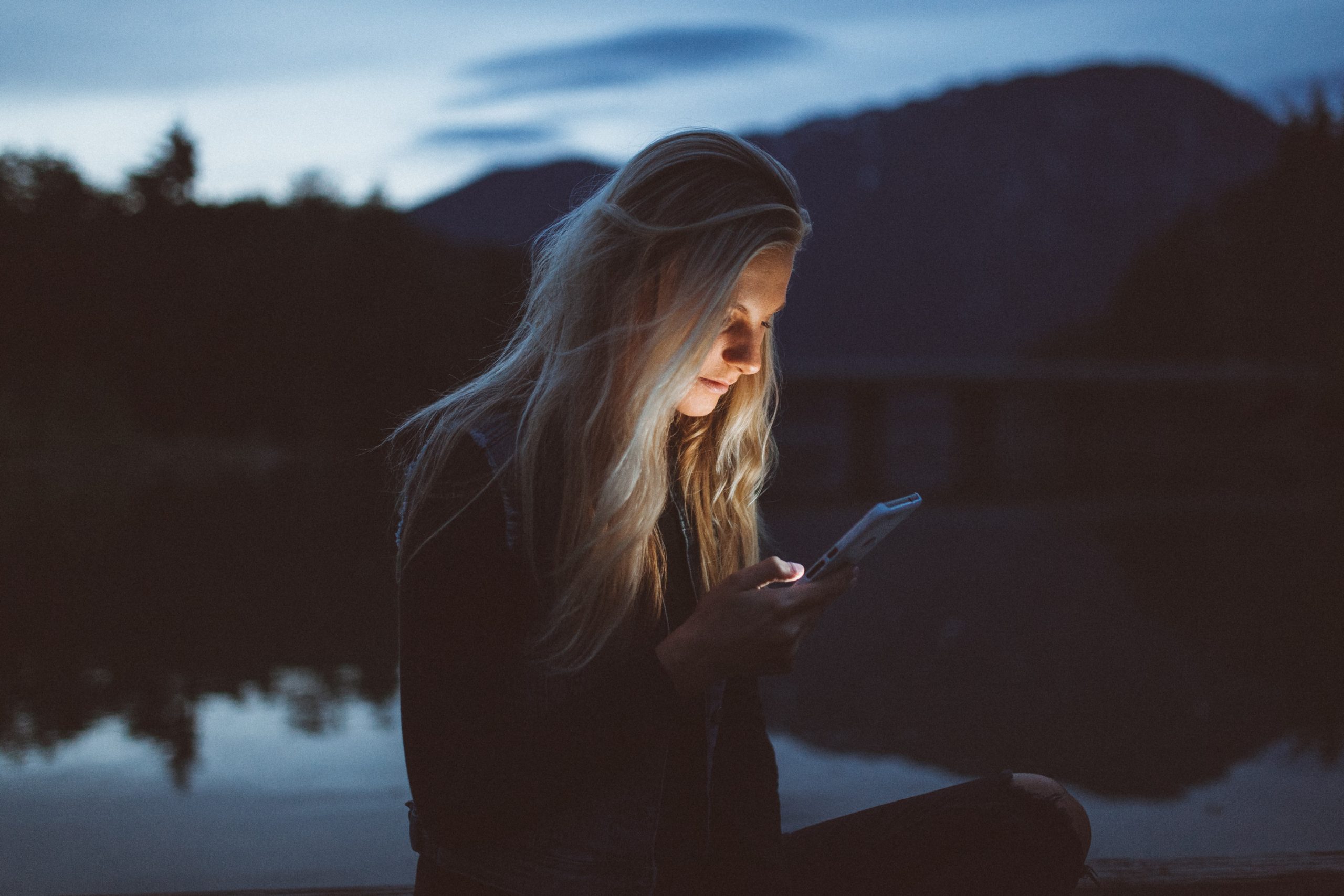I realized a few months ago that everything I felt was wrong in our health care system was, at its root, due to colonial thinking and ideals.
(Biomedical, even biopsychosocial, approach; no focus on the practitioner; no personal work; poor focus on relational care; strive for perfection; reductive, binary thinking etc).
I realized that as I set out to create a more progressive, relational, humble, creative, and explorative approach in my own clinic, this was actually decolonization.
Us physiotherapists are steeped in colonial ways of thinking. This likely means you’re thinking – “give me the practical tips I want to DO something!” And, is often accompanied by skipping to the end of the article.
My firm request it that you read the article to understand the why and how of the tips first. And don’t implement them until and unless you’ve integrated this content for yourself.
So what is decolonization?
I knew that decolonization was slippery for me to understand as a European person and living as a white settler in Canada.

Me, 2009. first year in Canada – NO idea of the history
However, as a woman, I absolutely understood the impact of patriarchy and I could use that to better empathize with the impacts of colonialism on Indigenous folk. Learning from my own experience, in relation to knowledge is actually an Indigenous way of learning (and it often works better than reading books). And that’s what gave me my light bulb moment.
Disclaimer: Please excuse the gender binary language and attitude through this thread. It doesn’t reflect my beliefs and I acknowledge and beg forgiveness for anyone who struggles with the analogy, it’s just the best one I had from my own experiences in heteronormative relationships.
Breakthrough
I was dating a guy years ago. It wasn’t serious or exclusive but nevertheless he was a good guy and I liked him and I didn’t expect it to end by being ghosted. A few weeks went by after it was obvious it was over, and I was hurt, angry, and didn’t want it to end that way. I trusted him enough (key point!) to speak up. Not easy. Yay me!
I messaged him and told him that it was fine if he wanted to end it, but I deserved the respect of a conversation and gave him the ABC’s of how to dump someone.

Photo cred: Becca Tapert Qofjunxy9ly Unsplash
He called me immediately to apologize and express his gratitude. He told me that he’d been feeling awful, that he knew it was wrong but the longer it went on, the worse he felt, and it had gotten harder and harder to do the right thing. Side note – this is called ‘guilt paralysis’ and we’ll come back to this later.
He expressed gratitude for me ‘calling him in’ as it gave him the opportunity to apologize, learn, and move on. I felt it was genuine and was grateful for his authentic remorse and the integrity with which dealt with his mistake.
I recalled this story as I was talking to Nikki Sanchez (an Indigenous activist and founder of Decolonize Together) about the difference between decolonizing and Indigenizing. See below for Nikki’s ted talk – Decolonization Is for Everyone.
https://www.youtube.com/watch?v=QP9x1NnCWNY
Decolonizing v Indigenising
‘Decolonizing’ is people of privilege deconstructing the system that holds them up and oppresses others. And it’s our responsibility and not the responsibility of Indigenous folk.
Indigenizing is the elevation and support of Indigenous peoples and their cultures, and this is the right of Indigenous people. While we can and should support this, it’s not for us to wade in and take over.
Let me explain by going back to my story.
Understanding the how of responsibility
Firstly, let’s acknowledge that the guy (we’ll call him Greg) could have ignored my message and carried on with his life and he didn’t, which was great.
And P.S. I don’t mean to imply that ghosting is behavior specific to masculinity, but I had felt objectified by him and that I was essentially a conquest, which is patriarchal, and regardless, this experience gave me my insight so I‘m using it.
Now, let’s say Greg was so impacted by my speaking out that he became committed to doing the work to deconstruct his sexism and also affect change among his male peers. That’s awesome. But, how he does this matters.
If Greg had gone back to his male friends and talked to them about this experience, shared his behavior, the impact on me, what he’d learned, and they had worked together to deconstruct this in him and them, this is the equivalent of decolonization.
But…. can you imagine how I would have felt if he’d said “thank you for the lesson, and now can you come and teach my friends this too?”

Photo cred: Engin Akyurt V7whjthetzy Unsplash
Firstly, I have a life to live and this has already been enough emotional labor. Secondly, how uncomfortable would it be for me to enter a room full of men and explain sexism and misogyny to them?
Knowing I was walking into a room where I was already viewed as less credible than them – perhaps as an ‘emotional woman who was making a big deal of things’.
Knowing that the fact they have good relationships with their sisters and mothers gives them a sexism get out clause.
Knowing that all cultural and social bias leans in their favor and against my success.
When I consider this prospect, it’s terrifying. And since that realization, I’ve felt in awe of the BIPOC folk educating us.
What is Indigenizing?
So, that helped me get clear on the why and how of decolonization.
As for Indigenizing… The parallel in this analogy is of women coming together, supporting each other, and elevating each other. It’s Indigenous people relearning their lost languages, building up their economy by supporting and investing in each other’s businesses, it’s conducting their ceremonies and fighting for the continuation of their cultures. That is their work and their privilege.
That is absolutely for me to support, but NOT like I know best or like my knowledge/insight is particularly needed.
Me making a move to do this work would be like Greg starting a circle for women to share their struggles through male oppression. Like him mansplaining feminism.
Gross right?
Appropriate approaches to learning
I own a private practice physiotherapy clinic treating pelvic health conditions. A lot of my explorations in social justice is to look at best practice for the clinic, which obviously starts with awareness and unlearning for us; the staff.
I started by hiring an Indigenous facilitator, Dr. Amie Wolf of Perception Work who taught us a lot, particularly from Eduardo Duran’s work “Healing the Soul Wound”. See video for an online interview with Duran.
In his text, he infuses Indigenous principles into his psychology practice.
I found his approach wildly inspiring and validating in terms of my personal understanding and belief systems. However, it was so Indigenized that it didn’t really translate to how we as a team could appropriately treat our clients. We were overwhelmed by the cultural differences, our lack of insight, and were left feeling inept.
As such, some felt that perhaps we were not the best people to treat Indigenous folk.
Let’s pause here because this is important.
While there is integrity in acknowledging a learning need and not wanting to present cultural competency where there is none, choosing not to treat (or act) is not an option.
That is guilt paralysis.

Photo cred: Jacqueline Day Kruuaz4gvhk Unsplash
The damage of guilt paralysis
Let me put it this way. What if pelvic health clinics had historically only been run by men for men. Women were rarely seen because they didn’t have the same privileges to access care. The inability to work, vote, and lack of sovereignty had left modern-day women in a position of poverty, making pelvic health care in a privatized system totally inaccessible.
Imagine that even if a woman did have the means, the current oppression, history of trauma in colonial health care, and countless acts of sexism may well prevent her from attending a clinic due to an inherent lack of trust and safety.
The few women that did make it to the clinic likely acted more like men in character and were certainly treated like men medically. Needless to say that treatment would therefore be less effective for these women than for the male patients at the clinic.
Now, let’s imagine, men have an awakening and realise that women
1) Exist and matter. Duh.
2) Are different from men (again sorry for the binary)
3) Have been repressed for years and thus haven’t accessed the care that they need.
What if these men said, “we don’t know anything about women, so it’s not ethical for us to treat them!”
Then WHERE WOULD WOMEN GET THEIR CARE!
I discussed this with Indigenous activist Nikki Sanchez and, after naming this as ‘guilt paralysis’, told me that to Indigenous people this
“felt equivalent to the segregation of the deep south and was as damaging as overt oppression and racism”.
Ouch.
So, the analogy continued. What should these men do?
It might be easy to learn a bit, get overwhelmed, then freeze up, put their heads in the sand and continue their work with men. Because they do a great job with men. Treating men isn’t that complex or challenging, and it feels successful, which makes life easier.
It might also be easy to say that specific women’s health care centers should be built to fulfill their specific needs. But why and how? Are they likely to be as well funded as the men’s??? The problems around this are endless.
Segregation is not reconciliation. It would be easier for men but not better for women.
It’s certainly not moving forwards.
So what to actually do?
The men need to see their privilege, see the huge gaps in their knowledge, and step up. Knowing it may be a while until they get it right, but there’s only one way to get there and that’s through being humble, and trying. They don’t need to set up a red tent in the clinic in case a menstruating woman comes in. But they do need to learn about periods.
More so, they need to examine every belief, system and technique they have, weedle out the root of it, and discern whether it is designed specifically for men in mind.
They need to assess if there is any potential harm to women in maintaining that belief. And if they don’t know, they should research (see below) and find out. They need to ask, what are we assuming? What don’t we know we don’t know? Where can we learn about women and what they may need to
1) access our care
2) feel safe in our care
3) receive care of equal quality and effectiveness to men
So, leaving the analogy behind, what should be done as practitioners to provide better services for Indigenous folk.
Yes, we should become more educated and aware of Indigenous cultures and practices.
No, we don’t Indigenise our physiotherapy practice and smudge clients on the way in (cultural appropriation).
Most importantly, be aware of what it may be like for an Indigenous person coming to our service.
Be aware of the historical, intergenerational, and present-day traumas they are carrying.
Be aware, be humble, get educated, and acknowledge.
Health care trauma
Indigenous people were rounded up, tortured, and killed in colonial systems.
Experiences in residential schools are well known, documented, and acknowledged socially, and by the government, today.
However, the experiences in Indian Hospitals are reported to be as harrowing regarding neglect and abuse, and reparations have yet to be made.
Indigenous people still suffer great racism in hospitals today.
Despite the odd Indigenous student grant; there is still such economic inequality, such colonial driven approaches, and so much embedded health care trauma, that it’s not surprising there are so few Indigenous physiotherapists and health care professionals in our system today.
Indigenous people make up just under 5% of the population, but only around 1% of health care professionals.
So, as settlers making up 99% of the service, it’s is our job to recognize our colonial ideals. That means to step out of our own known, and see that there are many assumed ‘truths’ in our belief systems and approaches.
I will be writing more on specific colonial ideals and how they show up in healthcare in upcoming blogs (join mail list for more).
It’s also our job to uncover our inherent bias and racism. Unlearn, change, then we can do better.
Lastly, if you seek out education from an Indigenous person or persons;
Imagine what it would feel like for you to educate your oppressors.
Imagine what you would need to feel safe and respected.
Imagine what it would be like for you to be faced with the very beliefs you are there trying to highlight as damaging, whilst in this vulnerable position.
As Dr. Amie Wolf pointed out to me after I hired her – I never considered, nor asked what she needed to feel safe.
I had carried the colonial view that she as the facilitator was in a position of power, and had been more concerned with my team’s safety.
After our conversation, I realized that she was actually the most vulnerable person in the room, and I hadn’t been aware of this at all. I learned a great lesson and thank her for her teachings.
Dr. Amie Wolf’s contribution
I consulted with Dr. Wolf about this article, and along with other advice, she gave me the following feedback.
Perhaps appeal to what we think of as Canada: enacting values of inclusion, multiculturalism, and equality as citizenship. Point out that we have not been true to ourselves and our ideals, and that this weakens us as people. Maybe allude to, A Fair Canada, by Ralston Saul, where he points out that all our public systems and even the potluck are based on Indigenous traditions of sharing and caring for all members of society. I suggest making a case for international leadership in health care by repairing our integrity to upholding values of respectful, reciprocal relationships enshrined in our Constitution Act. You could also point out that BC and Canada have signed the United Nations Declaration of Indigenous Peoples, obligating all Canadians to work together to uphold these rights through policy creation, accountability, and personal consciousness and attitudes.
It felt more authentic to offer this directly from her because she speaks with such ease and fluidity of community and collectivism. How beautiful if the above statement was true, not only in concept but also when getting down into the weeds of society.
As someone who was raised in an entirely individualistic culture, while I can speak those words, I don’t embody them like they’re embodied in Indigenous cultures.
I so envy and admire that open, connected, communal way of relating to the world.
The more I learn, the more I realize how much it is I, not the oppressed, who is really gaining from my liberation from colonial ideals.
3 Resources for learning about decolonization
- Resources and webinar series from First Nations health
- Step by step decolonizing workbook from Ta7talíya Michelle Nahanee of Decolonize first.
- Canadian research looking at elements required for “advancing cultural humility” in Physiotherapists working in Metis communities
Clue: community, reflection, relationships, cultural understanding
5 steps for decolonizing your clinic
- Allow space for each individual staff member to show up as human, warts and all. Allow for humility and vulnerability without consequence. This learning doesn’t happen without a few stumbles.
- Establish the trust and safety within the team and create a support system so there is the capacity for this challenging learning (eagerness to learn is not capacity to learn)
- Focus on feelings, reflections, and insights before action steps. The process requires lots of unlearning before doing.
- Understand that learning is individual and allow space for people to have different opinions, insights, and experiences. There is no right or wrong.
- Have staff focus on their own heritage and Indigeneity (a lot of insight can come from looking at your own past)
(Taken from teachings by Dr. Amie Wolf of Perception Work and Dr. Vicki Kelly of Simon Fraser University)
5 ways to consider Indigenous folk in your clinic:
- Be open to belief systems different from yours (look at what you react to, and deal with why – go to a therapist if you don’t know or pay a Black, Indigenous or person of Colour for a workshop).
For example – consider how you would react (internally) if an Indigenous client suggested ceremony as part of their treatment. - Be open to discussing spiritual beliefs and trauma once a relationship is established (this goes for all patients).
The Indigenous way is that you have to earn the right to that kind of information through relationship – aka it can’t be on an intake form.
BUT not unless you have gone deeply through step 1 and ideally have had some trauma training.
Also note, this is about the person’s beliefs not about their cultural identity – which can be risky to share (see below) - Ask permission about what you will chart – Indigenous folk may not want to identify as Indigenous in official records due to the vulnerability and potential consequences of doing so.
- Put a poster of the First Peoples Principles of Learning on the wall (see below)
- Have cultural tokens, like an eagle feather, present to openly acknowledge and welcome Indigenous culture
(Advice directly from Amie Wolf of Perception Work)
First Peoples Principles of Learning
Don’t forget to financially support!
No one time donations!
If you buy products or services for the clinic (or personally) – look for Indigenous owned and operated companies to utilize e.g. Sequoia for essential oils or Black and Indigenous-owned book stores. Message me with any company’s you’ve found!
If you made it this far – thank you!
I would like to acknowledge and thank Dr. Amie Wolf for her advice, support, and generous contribution to this article.
Decolonizing myself will be an endless, lifelong process, and it cannot be done alone. I hope there are other physio’s or health providers who are with me.
Let’s try, stumble, and learn together.
